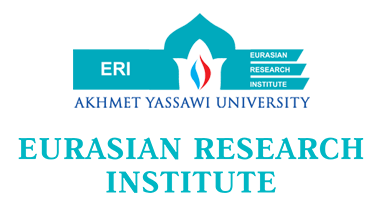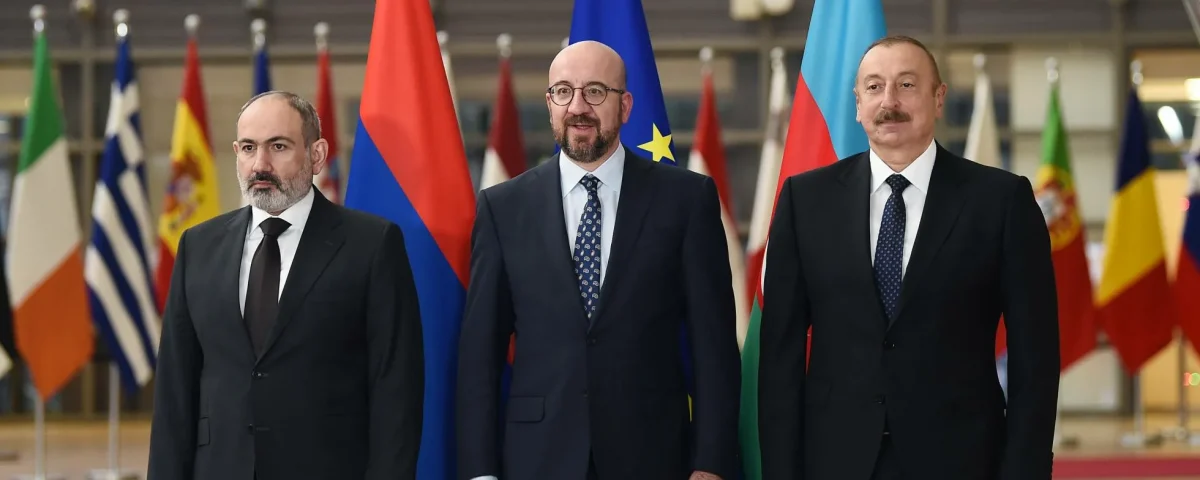On February 12, 2025, the Armenian Parliament passed a draft law supporting Armenia’s prospective EU membership on its first reading with 63 votes in favor and seven against. The bill was initiated based on a petition to draft a law regarding Armenia’s potential membership in the EU, which gathered 50,000 signatures. The Armenian government approved it during a cabinet meeting in early January 2025. Armenian Prime Minister Nikol Pashinyan commented that adopting the law does not imply Armenia’s accession to the EU and that further decisions could only be made through a referendum (OC Media, 2025).
It should be admitted that European integration has always been an option that Armenia could choose ever since it gained independence in 1991. It began considering European integration in the late 1990s and early 2000s. For instance, in 1996, Armenia became a member of the Council of Europe, which was its first major institutional connection with Europe. In 1999, Armenia signed the Partnership and Cooperation Agreement (PCA) with the European Union (EU), which entered into force in 1999. This agreement served as the basis for Armenia-EU relations. In 2004, Armenia joined the European Neighborhood Policy (ENP), a framework designed to bring EU neighbors closer without full membership. In 2010, negotiations began on an EU-Armenia Association Agreement (AA), including a Deep and Comprehensive Free Trade Area (DCFTA). However, the institutional alignment of Armenia started to decelerate after 2013 when it suspended its negotiations with the EU and announced its decision to join the Eurasian Economic Union (EAEU) with Russia, Kazakhstan and Belarus. Eventually, in 2015, Armenia officially became a member of the EAEU, which made it impossible to reach a free trade agreement with the EU.
Nevertheless, Armenia never completely renounced its European aspirations, and the path towards seeking EU membership always remained one of the possibilities that Armenia could follow, nor did the EU close its doors for Armenia. Despite the European perspectives of Armenia having a very long way to go and that Armenia never took European integration as a commitment, as it was done by Moldova, Ukraine and Georgia in different periods depending on internal political configurations and external geopolitical circumstances, Armenia did engage in different cooperation schemes that could be conducive to its European integration at some point in the future. Thus, in 2017, Armenia and the EU signed the Comprehensive and Enhanced Partnership Agreement (CEPA), which replaced the canceled Association Agreement. This agreement deepened political, economic, and sectoral cooperation without a free trade component. In 2024, Armenia re-initiated its movement towards European integration which was publicly stated by Prime Minister Nikol Pashinyan on several occasions (The Prime Minister of the Republic of Armenia, 2024). Therefore, despite its membership in the EAEU and close cooperation with Russia within other regional frameworks, Armenia’s drift toward the EU has shown more consistency than its commitment to partnership with Russia since gaining independence. In a broader context, its EAEU membership appears to have been a short-term detour from its broader westward trajectory.
At the beginning of 2024, Armenia made it even clearer that it is moving toward European integration by freezing its membership in the Russian-led Collective Security Treaty Organization (CSTO) (Radio Free Europe, 2024). At the same time, Armenia has explicitly stated that it will not withdraw from the Eurasian Economic Union (EAEU). This suggests that Armenia’s EAEU membership is driven purely by economic interests, which is quite logical, considering that Russia remains Armenia’s largest trade partner, accounting for over one-third of its total foreign trade (Eurasian Economic Commission, 2021). Obviously, this is a somewhat contradictory position, as the European Union is not only a political but also an economic union, making simultaneous membership in the EU and another economic bloc impossible. However, European integration is a long and complex process, and in Armenia’s case, it could take even longer due to the complexities of the process and the challenges involved. A broadly simplified way to interpret Armenia’s European aspirations is to see them as inversely related to the strength of its partnership with Russia—the weaker the ties between Armenia and Russia, the faster Armenia’s European integration process is likely to accelerate.
Until recently, Armenia’s partnership with Russia was built on two key pillars: economic ties (as previously mentioned) and security cooperation. However, several major geopolitical shifts have weakened the security cooperation between the two countries. First, the 2020 Nagorno-Karabakh conflict and Russia’s lack of support seriously undermined Armenia’s security reliance on Moscow. Russia has traditionally been a safeguard of Armenia’s security and conflict mediator in the region within the context of its disputes with Azerbaijan over the Nagorno-Karabakh territory and this role has been deeply embedded in the public perception of the Armenian population. Moreover, in September 2022 Armenia officially requested CSTO assistance. However, Russia did not activate the CSTO defense mechanism, citing Nagorno-Karabakh’s disputed status and de facto recognizing Nagorno-Karabakh as part of Azerbaijan. Instead of military intervention, Russia negotiated the ceasefire and sent peacekeepers which faded the image of Russia among Armenians as reflected in public opinion polls (Civilnet, 2023).
The Ukrainian conflict has also led to comparisons with Armenia’s situation, with some drawing parallels between Russia’s actions in Ukraine and its neglect of Armenia. Over the past few years, there has been a gradual shift in Armenian public opinion, moving from justifying Russia’s invasion to viewing it as unjustified. For instance, in a survey conducted in April 2022, 45.8% of Armenian citizens had a positive perception of the Russian military’s actions in Ukraine, while 39.6% considered the war unjustified (Eurasia.expert, 2022). By April 2023, another survey showed that the percentage of respondents who viewed Russia’s invasion as unjustified had increased to 52.4% while the share of those who considered it as a justified action stood at nearly half (22.5%) of what it had been a year before (ArmInfo, 2023). In other words, there has been a significant shift in the perception of Russia, and its role has been reevaluated in the minds of ordinary people in Armenia, contributing to a decline in pro-Russian sentiments and a search for alternative allies in the West.
Despite the deep resentment among the Armenian people over the loss of control of the Nagorno-Karabakh region, reconciling with this reality can serve as a solid starting point for Armenia’s regional consolidation and, in the long term, its European integration. Firstly, resolving the Nagorno-Karabakh conflict through Armenia’s recognition of Azerbaijan’s sovereignty over the territory helps reduce Armenia’s dependence on Russia. This shift is already resonating with Armenian public opinion, as Russia’s international image continues to deteriorate due to the war in Ukraine.
Secondly, the full resolution of the Nagorno-Karabakh conflict is a key factor in Armenia’s normalization of relations with Azerbaijan and to some extent with Türkiye, which is a crucial development given Armenia’s landlocked geographical position. Recent opinion polls indicate that the majority of Armenians support the normalization of relations with Azerbaijan (Jam-News, 2024). In this context, it is also a positive sign that Armenia and Iran have reaffirmed their commitment to the North-South Highway, a strategic transport corridor connecting Armenia’s southern border with Iran to its northern border with Georgia. This commitment was reinforced during a January 2025 meeting in Yerevan between Armenian Prime Minister Nikol Pashinyan and Iranian Secretary of the Supreme National Security Council, Ali Akbar Ahmadian (Prime Minister of Armenia, 2025). The project aims to enhance regional connectivity, boost economic activity, and reduce travel times within Armenia. More importantly, it would help reduce Armenia’s reliance on Russia for foreign trade and transportation.
Thirdly, Armenia’s formal recognition of Nagorno-Karabakh as part of Azerbaijan has significantly facilitated its future European integration, as it aligns with the EU’s principles of territorial integrity, removing a major obstacle in EU-Armenia relations. By realigning itself with its internationally recognized borders, Armenia meets the expectations of the EU and Western partners, who have been encouraging it to reduce its dependence on Russia. Moreover, renouncing claims over Nagorno-Karabakh also lays a positive foundation for Armenia’s NATO-related partnerships, with NATO membership potentially becoming a long-term strategic goal for the country.
The weakening of Armenia’s reliance on Russia over the past several years has been accompanied by a notable rise in pro-European sentiments among ordinary Armenians, as reflected in various opinion polls. For instance, a recent survey conducted in January 2025 indicated that around 55% of Armenians favor a draft law supporting Armenia’s prospective EU membership, while only less than one-third of the population oppose the idea (Report.az, 2025). By comparison, in 2016, 41% of Armenians supported the country’s potential accession to the EU, and in 2014, this figure stood at just 25%. (Regnum.ru, 2016). Another survey from 2024 revealed that 16.9% of respondents believed Armenia should remain in the CSTO, while 29% favored NATO membership, and 44.3% stated that Armenia should be a neutral country (TASS, 2024). These polling data highlight a significant decline in support for Russia-led organizations and a reduction in enthusiasm for close Armenia-Russia ties over the past decade. Interestingly, this shift has been accompanied by a proportional rise in pro-European and generally pro-Western attitudes among Armenians.
One of the factors that may have contributed to the development of stronger pro-European attitudes in Armenia is the Armenian diaspora in Europe. Hundreds of thousands of ethnic Armenians living in France, Germany, Belgium, and other EU countries have long been active advocates for closer Armenia-EU relations, influencing both Armenian policymakers and European institutions in this regard. Well-integrated into their host countries while maintaining strong ties to their homeland, the Armenian diaspora in Europe has played a key role in lobbying European governments and EU institutions to strengthen relations with Armenia. This diaspora influence is likely to continue playing a significant role in Armenia’s future European integration. A similar case can be observed in Moldova and, to a lesser extent, in Ukraine, where ethnic diasporas in European countries have actively promoted a pro-European agenda in their respective countries of origin.
References:
ArmInfo (2023). The overwhelming majority of respondents in Armenia consider Russia’s actions in Ukraine unjustified and do not rule out the possibility of nuclear war. Retrieved from https://arminfo.info/full_news.php?id=75568. Accessed on 12.02.2024.
Civilnet.am (2023). How has the attitude of Armenian citizens toward Russia and Turkey changed from 2018 to 2023? Retrieved from https://www.civilnet.am/ru/news/699200/как-изменилось-отношение-граждан-армении-к-россии-и-турции-за-период-с-2018-по-2023-год/. Accessed on 10.02.2024.
Eurasia.expert (2022). It has become known how Armenians feel about the special operation in Ukraine. Retrieved from https://eurasia.expert/stalo-izvestno-kak-armyane-otnosyatsya-k-spetsoperatsii-na-ukraine/. Accessed on 15.02.2024.
Eurasian Economic Commission (2021). Statistics of external and mutual trade. Retrieved from https://eec.eaeunion.org/comission/department/dep_stat/tradestat/tables/extra/2021.php. Accessed on 10.02.2024.
Jam-News (2024). 56% in Armenia support the signing of a peace treaty with Azerbaijan: IRI survey. Retrieved from https://jam-news.net//ru/опрос-iri-в-армении-исследование-по-всем/. Accessed on 10.02.2024.
OC Media (2025) Armenian EU membership bill passes first reading. Retrieved from https://oc-media.org/armenian-eu-membership-bill-passes-first-reading/. Accessed on 15.02.2024.
Primeminister.am (2025). The Prime Minister receives a delegation led by the Secretary of the Supreme National Security Council of the Islamic Republic of Iran. Retrieved from https://www.primeminister.am/en/press-release/item/2025/01/09/Nikol-Pashinyan-meeting/. Accessed on 10.02.2024.
Radio Free Europe (2024). Pashinian Says Armenia Freezes Membership In Russian-Led Security Alliance. Retrieved from https://www.rferl.org/a/armenia-pashinian-csto-frozen/32832200.html. Accessed on 10.02.2024.
Regnum.ru (2016). 41% of respondents in Armenia support joining the EU. Retrieved from https://regnum.ru/news/2174143. Accessed on 13.02.2024.
Report.az (2025). About 50% of Armenian citizens support the idea of the country joining the EU. Retrieved from https://report.az/ru/v-regione/opros-okolo-50-grazhdan-armenii-podderzhivayut-ideyu-o-vstuplenii-strany-v-es/. Accessed on 10.02.2024.
TASS (2024). About 17% of the surveyed population in Armenia believe that the country should remain in the CSTO. Retrieved from https://tass.ru/mezhdunarodnaya-panorama/21325633. Accessed on 10.02.2024.
The Prime Minister of the Republic of Armenia (2024). The Prime Minister receives the delegation headed by the Vice President of the European Commission. Retrieved from https://www.primeminister.am/en/press-release/item/2024/09/09/Nikol-Pashinyan-meeting/. Accessed on 10.02.2024.
Note: The views expressed in this blog are the author’s own and do not necessarily reflect the Institute’s editorial policy.

